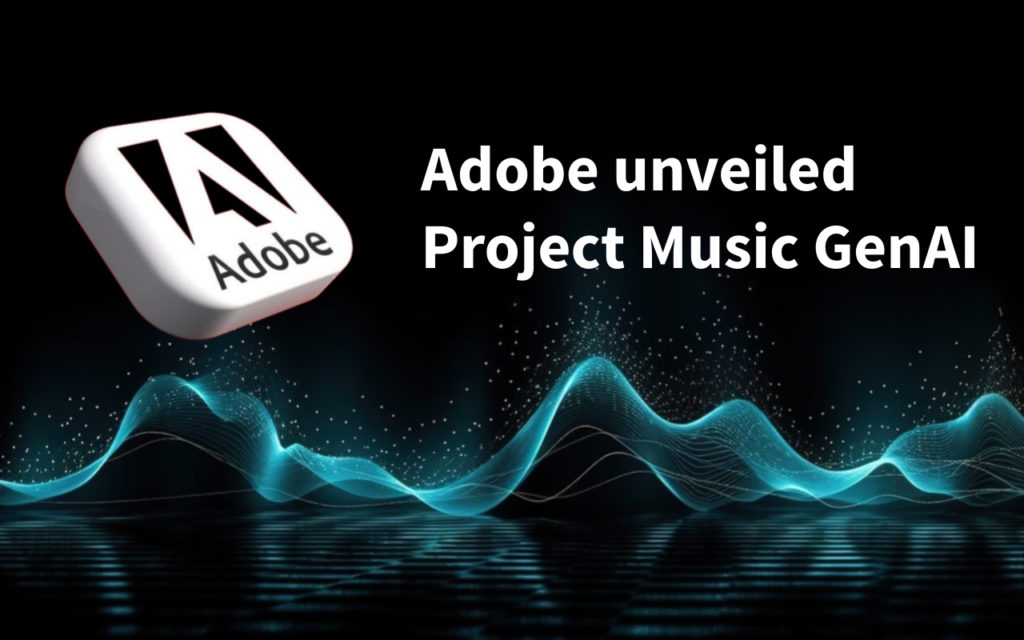
Hey Folks! Adobe is jumping headfirst into AI with their intriguing Project Music Gen AI Control. This new tool promises to revolutionize music production by allowing users to generate music using artificial intelligence.
Imagine this: you simply type in “Epic Orchestral Soundtrack” or “Chill Lo-Fi Beats” into a prompt, and Project Music Gen AI Control creates a custom track on the spot. No expensive equipment, no studio musicians – just AI at your fingertips.
Sounds too good to be true? Let’s break it down.
The Potential of AI Music Generation
Project Music Gen AI Control isn’t available yet, but the possibilities are exciting. Here are some potential benefits:
- Instant custom music: Create background tracks for podcasts, YouTube videos, or any project needing a specific sound.
- Accessibility for all: Anyone can create music, regardless of musical experience or expensive equipment.
- AI-powered post-processing: Imagine automating tasks like EQ, compression, and noise reduction – a huge time-saver for producers.
But is AI music truly creative?
One major question mark surrounding Project Music Gen AI Control is its creative potential. Can AI ever truly replicate human creativity? Here are some concerns to consider:
- Originality: Will AI-generated music simply sound generic and repetitive?
- Full Compositions vs. Background Tracks: Can AI create complex, nuanced compositions, or is it better suited for simpler background pieces?
The Future of AI in Music and Audio
The potential impact of AI on the music industry is a hot topic. Will AI become an essential tool for producers, or just a fancy gimmick?
Can AI Compose Like Mozart?
Let’s be honest, folks. The biggest question mark hanging over AI music is its creative spark. Can a computer program truly capture the raw emotion and ingenuity of a human composer?
I recently saw some demos, and while impressive, a part of me whispered, “This would be perfect for background music in a coffee shop.” Don’t get me wrong, creating custom soundtracks for podcasts or YouTube videos sounds like a dream come true for many creators. But crafting full-fledged, complex compositions with a unique voice? That’s where the jury’s still out.
The Rise of the Cyborg Musician
Maybe AI music isn’t about replacing human composers, but rather becoming a powerful new tool in our sonic arsenal. Imagine the possibilities! You could use AI to generate a basic melody, then tweak it, add your own instruments, and infuse it with your unique style. It’s like having a brainstorming partner who can churn out endless musical ideas in seconds.
While I can’t personally use these tools, I’ve been delving into demos and reviews of various music generators. Here are some observations:
- Impressive Starting Points: AI can generate surprisingly catchy melodies, rhythmic patterns, and even chord progressions. It’s like having a brainstorming partner who can throw out a variety of musical ideas in a short amount of time.
- The Human Touch Makes the Difference: While the raw creations can be interesting, they often lack the emotional depth and unique touches that human musicians bring. It seems AI excels at providing a foundation, but needs human intervention to truly shine.
- A New Frontier for Collaboration: Perhaps the most exciting aspect is the potential for AI to collaborate with human musicians. Imagine using AI-generated ideas as a springboard for your own compositions, or having AI handle repetitive tasks like background textures while you focus on the heart of the piece.
The Future of AI Music
Overall, AI-music generation seems to be in its early stages, but with immense potential. It’s not about replacing human musicians, but rather offering a new set of tools to expand our creative horizons.
What about you? Have you experimented with music generation tools? Share your experiences in the comments below! Let’s create a conversation about how Artifical intelligence can shape the future of music.